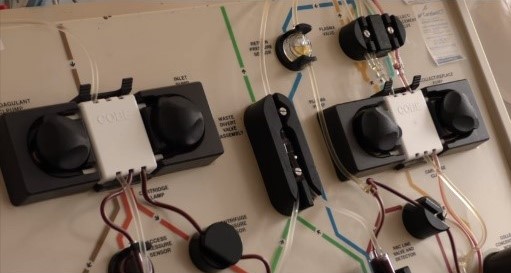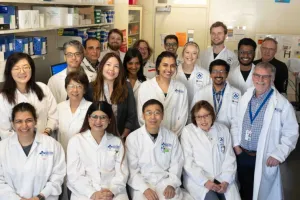Plasma exchange may help treat rare blood clots related to vaccines
 A plasma exchange machine (pictured above) can remove antibodies from the blood, including those associated with rare vaccine-related blood clots.Canadian researchers have published the first study of plasma exchange as a possible treatment for rare blood clots related to certain COVID-19 vaccines.
A plasma exchange machine (pictured above) can remove antibodies from the blood, including those associated with rare vaccine-related blood clots.Canadian researchers have published the first study of plasma exchange as a possible treatment for rare blood clots related to certain COVID-19 vaccines.
Published in the New England Journal of Medicine, the case report focuses on three patients: one from The Ottawa Hospital, one from Toronto and another from Québec. All patients were treated with standard therapies for vaccine-induced blood clots, but did not respond.
Since these clots are caused by antibodies in the blood, the researchers reasoned that removing a patient's antibodies with a plasma exchange machine might help. All three patients recovered during their hospitalization, although one required a leg amputation.
Vaccine-induced blood clots are very rare, occurring in about 1 in 100,000 doses. Survival ranges from 30% to 60%.
The researchers suggest that plasma exchange may be an effective treatment for these blood clots if other treatments fail, but further research is needed to confirm this.
Authors: Patriquin CJ, Laroche V, Selby R, Pendergrast J, Barth D, Côté B, Gagnon N, Roberge G, Carrier M, Castellucci LA, Scarvelis D, Mack JP.
The Ottawa Hospital is a leading academic health, research and learning hospital proudly affiliated with the University of Ottawa and supported by The Ottawa Hospital Foundation.
Media Contact
Jenn Ganton
613-614-5253
jganton@ohri.ca
Learn more about:
The Ottawa Hospital is a leading academic health, research and learning hospital proudly affiliated with the University of Ottawa and supported by The Ottawa Hospital Foundation.


